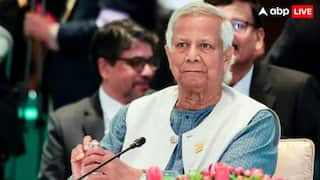Extraordinary Attorney Woo & 9 Other K-dramas Shine A Spotlight On Mental Health Issues
K-dramas have raised awareness and also somewhat fostered a sense of empathy in their viewers’ minds by portraying characters who face various mental health complications.

Not just cute meet-cutes and emotional dramas, K-dramas have, more importantly, also tackled mental health and social concerns. The fast-paced and ever-changing nature of contemporary society has woven these themes into moving stories.
In recent years, particularly with the advent of the pandemic, people have started paying much-deserved attention to mental health as a theme, and suffering from mental health problems isn’t a taboo anymore. K-dramas have raised awareness and also somewhat fostered a sense of empathy in their viewers’ minds by portraying characters who face various mental health complications, and the story is about them discovering, struggling, surviving, and finding themselves in the show.
Here are 10 Korean dramas that we recommend to people who wish to explore the same theme:
It’s Okay to Not Be Okay
Kim Soo-Hyun starrer is a soothing antidote to toxic positivity. The narrative focuses on how trauma affects people and how relationships and self-discovery can aid in the healing process. It emphasises the value of self-acceptance, mental health awareness, and the ability of compassion and understanding to help people get through difficult times.
Where to watch: Netflix
Daily Dose of Sunshine
This K-drama strives to deliver the message that mental health problems can affect anyone at any point in life. Be it a working mom, a student, or even a medical professional, the drama portrays a realistic spectrum of experiences of ordinary people. Individuals struggling with mental health problems are frequently subjected to judgement and prejudice by society, leading to exclusion from social circles and discrimination in their workplaces. The drama also speaks to those suffering and encourages them to shed guilt or shame and embrace their ailments because illness is no sin.
Where to watch: Netflix
Kill Me, Heal Me
Cha Do-hyun (played by Ji Sung) is a third-generation chaebol heir who suffers from dissociative identity disorder. He has seven different personalities, each with their own unique characteristics. Oh Ri-jin (played by Hwang Jung-eum) is a first-year psychiatry resident who begins to treat Do-hyun. As she helps him to integrate his personality, they also develop a romantic relationship.
Where to watch: Viki
Extraordinary Attorney Woo
This sparked conversations about how the show represents autistic characters, and some say it can help improve the general understanding of autism. The show's main character, Woo Young-woo, has many autistic traits, including counting before entering a room, struggling with revolving doors, and obsessive thought processes. Some say the show's creative way of presenting her inner thoughts is reminiscent of Temple Grandin's description of her own visual thoughts. However, others say that the show's writers make Young-woo's traits seem cute and palatable and that the show doesn't fully portray what it's like to be autistic.
Where to watch: Netflix
Our Blues
The director crafts a vital scene to show how she struggles to get a grip on time. She goes to the bathroom during the day, but by the time she is done, she realises that the sun has already set and she can’t sense a thing. As she leans over the balcony to confirm if it has already been night, the world around her starts to haze, and the bright buildings outside lose their light one by one as complete darkness takes over. Despite being in a room full of lights, depression. All along, Seon Ah tries her best to get better. The director crafts a very important scene to show how she struggles to get a grip on time. Our Blues is different from other K-Dramas handling depression as it focuses on the emotional psyche of Seon Ah. It's about how she fights not just with society but with her inner demons to be happy.
Where to watch: Netflix
Hello, My Twenties
Dives into the realities of young adulthood through the lives of five female housemates. Each grapples with their mental health challenges, from anxiety and depression to eating disorders and feelings of inadequacy. Yet, the drama isn't a heavy watch. It celebrates the power of friendship and support as these women navigate their struggles. We see them discover healthy coping mechanisms like therapy, open communication, and self-care.
Where to watch: Viki
Reply 1988
Sung Deok-sun, one of the main characters, grapples with low self-esteem. We see this through her struggles with academic performance compared to her sister, social comparisons that fuel insecurity, and a constant need for validation. Yet, the drama doesn't paint her struggles as abnormal. Instead, it subtly portrays them as a result of societal pressures faced by many young people. The show emphasises the power of a supportive network. Deok-sun's close-knit friends and family act as a buffer against her anxieties, offering acceptance and unconditional love. Reply 1988 ultimately shows a journey of self-discovery, where Deok-sun starts to embrace herself despite her anxieties, highlighting the importance of supportive relationships and personal growth in navigating these challenges.
Where to watch: Netflix
Happiness
While a thrilling fight against a contagious disease takes centre stage, Happiness also delves into the mental health struggles of its characters in a high-pressure situation. Confined within a quarantined apartment complex, residents grapple with fear, isolation, and the potential loss of loved ones. This can manifest as anxiety, paranoia, and even distrust among neighbors. The drama doesn't shy away from showing the emotional toll of such a crisis, highlighting the importance of resilience and finding strength in each other to cope with the psychological impact of the outbreak.
Where to watch: Viki
Melancholia
It explores the complexities of mental health through an unlikely connection. Ji Yoon-soo, a math teacher ostracised for a false accusation, returns to teach a special class for gifted students. One student, Baek Seung-you, is a brilliant math prodigy but struggles with emotional issues. As they navigate the world of mathematics, the drama delves into themes of trauma, isolation, and the healing power of connection. Yoon-soo's journey to rebuild her life and Seung-you's struggle to find his place intertwine, showcasing the importance of empathy and understanding in overcoming mental health challenges.
Where to watch: Netflix
My Mister
It delves into the complexities of mental health through a nuanced exploration of its characters. Park Dong-hoon, the male protagonist, carries the weight of family burdens and financial stress. While not explicitly stated, he displays signs of depression and emotional exhaustion. Ji-an, the female lead, grapples with the weight of trauma and grief from a young age. She struggles with finding purpose and motivation for life. The drama avoids sensationalising their struggles, instead portraying their raw emotions and coping mechanisms.
Where to watch: Viki
(Sanya Bhattacharjee is a final year student currently studying at Bennett University, pursuing BA in Journalism and Mass Communication.)
Related Video
Salman Khan Birthday: Salman Khan Celebrates 60th Birthday in Grand Style at Panvel Farmhouse






































